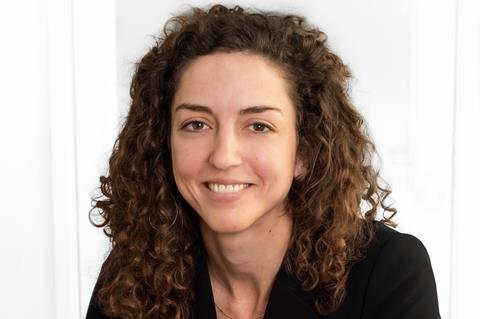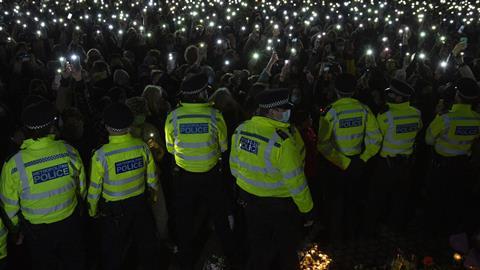Solicitors representing some of the people who no longer face prosecution for attending a vigil for Sarah Everard last year have criticised the ‘closed door’ process of the Single Justice Procedure (SJP) and raised conflict of interest concerns.
Over the weekend The Guardian reported that the Crown Prosecution Service discontinued attempts by the Metropolitan Police to prosecute six protestors as it was not in the public interest.
A spokesperson for the CPS said: ‘We have a duty to keep cases under continuous review and we concluded that our legal test for a prosecution was not met.’
One of the protestors, Dania Al-Obeid, was represented by Commons Legal solicitor Grace Loncraine. Loncraine said that her client had not received an SJP notice and was convicted under the Single Justice Procedure in her absence. She found out about it only after being contacted by the Evening Standard courts correspondent, Tristan Kirk. She then completed a statutory declaration to the effect she did not know about her conviction, which was accepted by the magistrates’ court. The conviction was reopened. She pleaded not guilty and the case was sent for trial in the magistrates' court in the usual way. The CPS took over the prosecution from the Met when Al-Obeid pleaded not guilty.

Loncraine said: ‘What makes what happened to Dania and the others so scary, and their victory important, is the way that different arms of the state worked so efficiently together in order to silence them – the government’s relentless attack on the right to peaceful protest, the overbearing physical force of the officers on the scene, and then the closed-door, box-ticking convictions.’
Hodge Jones & Allen partner Raj Chada, who represented Jennifer Edmunds, welcomed the CPS’s decision, ‘one that any reasonable lawyer would have come to’.
However, he said it brings the Single Justice Procedure into question. ‘There is a clear conflict of interest in allowing the police to proceed to charge in such cases - where the conduct of the Met itself is likely to be an issue. That has meant a waste of public money and increased anguish for clients, which may have been worse if they didn’t seek legal advice.’
Metropolitan Police assistant commissioner Louisa Rolfe said: ‘We know how important it was for people to remember Sarah Everard and voice their anger. Officers took very seriously their duty to safeguard the public during the pandemic and to balance this with the rights of individuals.
‘The decision to pursue a prosecution in these circumstances is entirely a matter for the CPS.’
Update (Tuesday, 12pm): The CPS and the Metropolitan Police have told the Gazette that four cases have been dropped.
This article is now closed for comment.




























13 Readers' comments